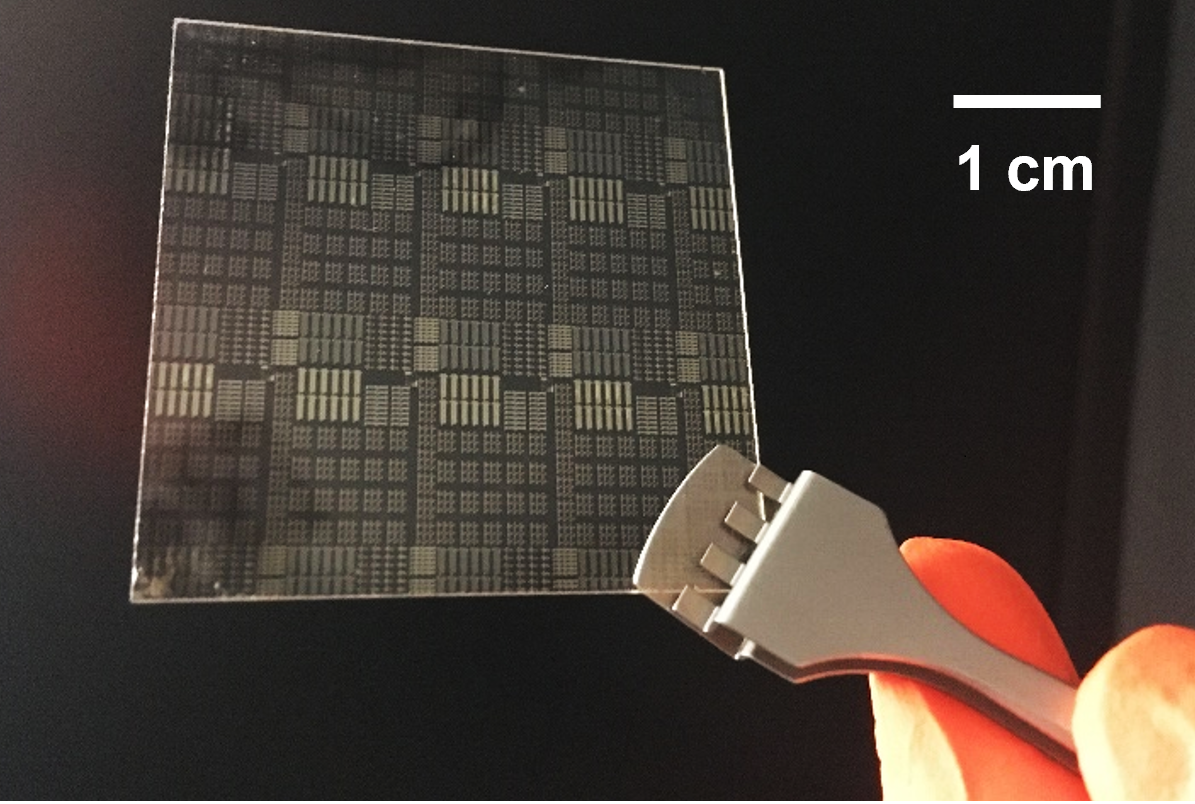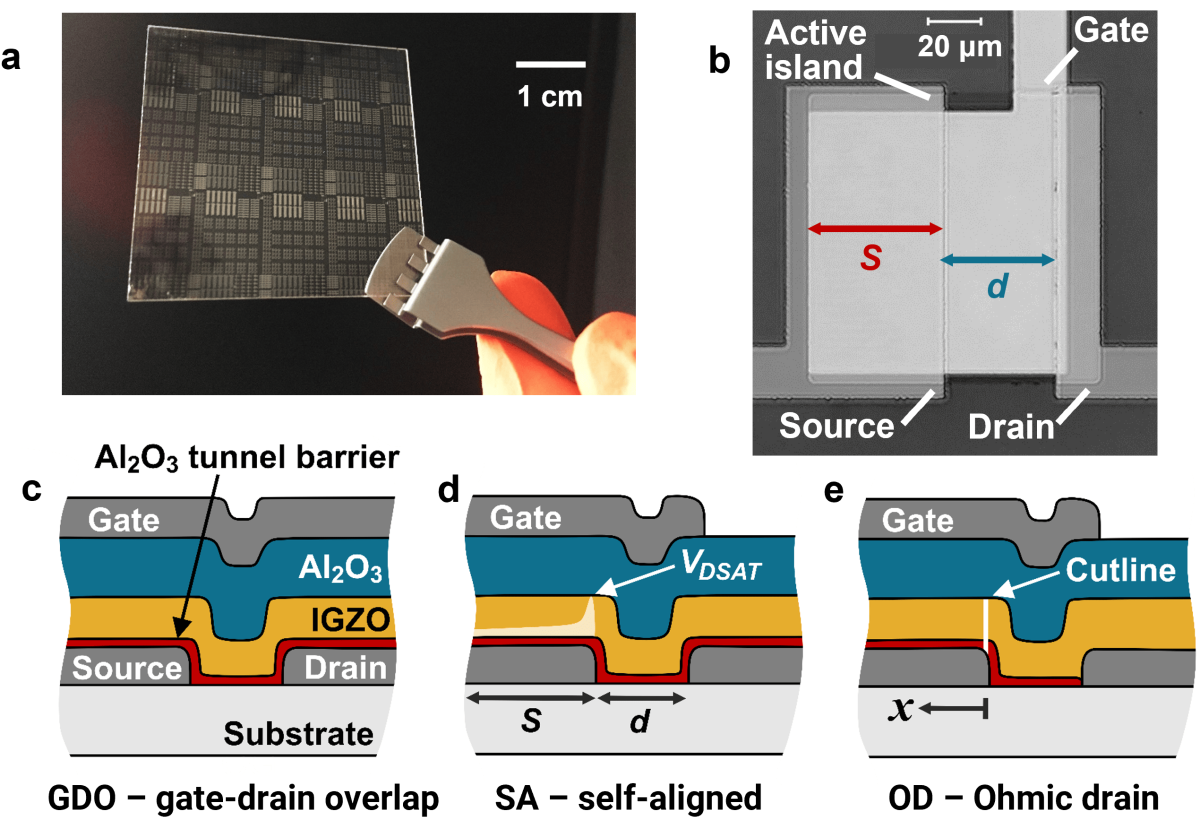Breakthrough innovation could solve temperature issues for source-gated transistors and lead to low-cost, flexible displays
Low-cost, flexible displays that use very little energy could be a step closer, thanks to an innovation from the University of Surrey that solves a problem that has plagued source-gated transistors (SGT).

Dr Radu Sporea, project lead from the University of Surrey, said:
"We used a rapidly emerging semiconductor material called IGZO or indium-gallium-zinc oxide to create the next generation of source-gated transistors. Through nanoscale contact engineering, we obtained transistors that are much more stable with temperature than previous attempts. Device simulations allowed us to understand this effect.
"This new design adds temperature stability to SGTs and retains usual benefits like using low power, producing high signal amplification, and being more reliable under different conditions. While source-gated transistors are not mainstream because of a handful of performance limitations, we are steadily chipping away at their shortcomings."
A source-gated transistor (SGT) is a special type of transistor that combines two fundamental components of electronics – a thin-film transistor and a carefully engineered metal-semiconductor contact. It has many advantages over traditional transistors, including using less power and being more stable. SGTs are suitable for large-area electronics and are promising candidates to be used in various fields such as medicine, engineering and computing.
@surrey.ac.uk

Salman Alfarisyi performed the simulations at the University of Surrey as part of his final-year undergraduate project. Salman said:
"Source-gate transistors could be the building block to new power-efficient flexible electronics technology that helps to meet our energy needs without damaging the health of our planet. For example, their sensing and signal amplification ability makes it easy to recommend them as key elements for medical devices that interface with our entire body, allowing us to better understand human health."
The study has been published by IEEE Transactions on Electron Devices.
The University of Surrey is a world-leading centre for excellence in sustainability – where our multi-disciplinary research connects society and technology to equip humanity with the tools to tackle climate change, clean our air, reduce the impacts of pollution on health and help us live better, more sustainable lives. The University is committed to improving its own resource efficiency on its estate and being a sector leader, aiming to be carbon neutral by 2030. A focus on research that makes a difference to the world has contributed to Surrey being ranked 55th in the world in the Times Higher Education (THE) University Impact Rankings 2022, which assesses more than 1,400 universities' performance against the United Nations' Sustainable Development Goals (SDGs).
###
Notes to editors
S. Alfarisyi et al., "Evidence of Improved Thermal Stability via Nanoscale Contact Engineering in IGZO Source-Gated Thin-Film Transistors," in IEEE Transactions on Electron Devices, doi: 10.1109/TED.2023.3276337.
Dr Radu Sporea is available for an interview upon request.
For more information, please contact the University of Surrey's press office via mediarelations
Media Contacts
External Communications and PR team
Phone: +44 (0)1483 684380 / 688914 / 684378
Email: mediarelations@surrey.ac.uk
Out of hours: +44 (0)7773 479911
